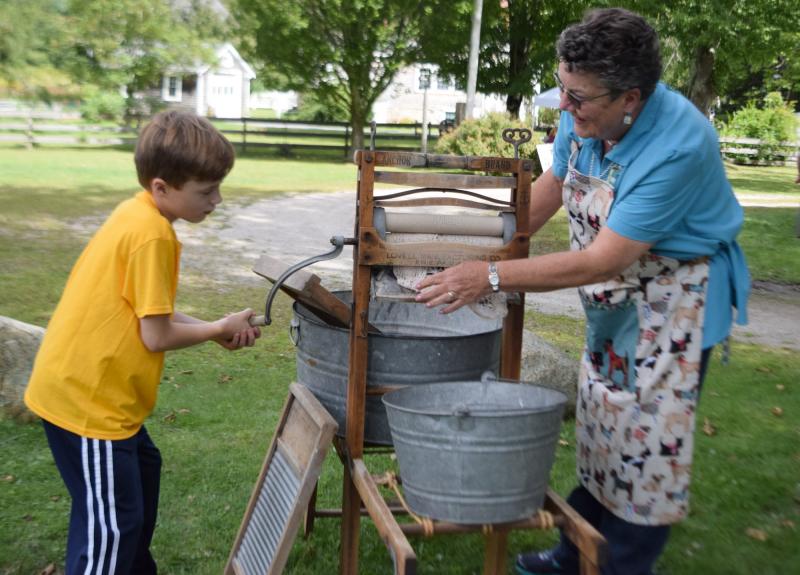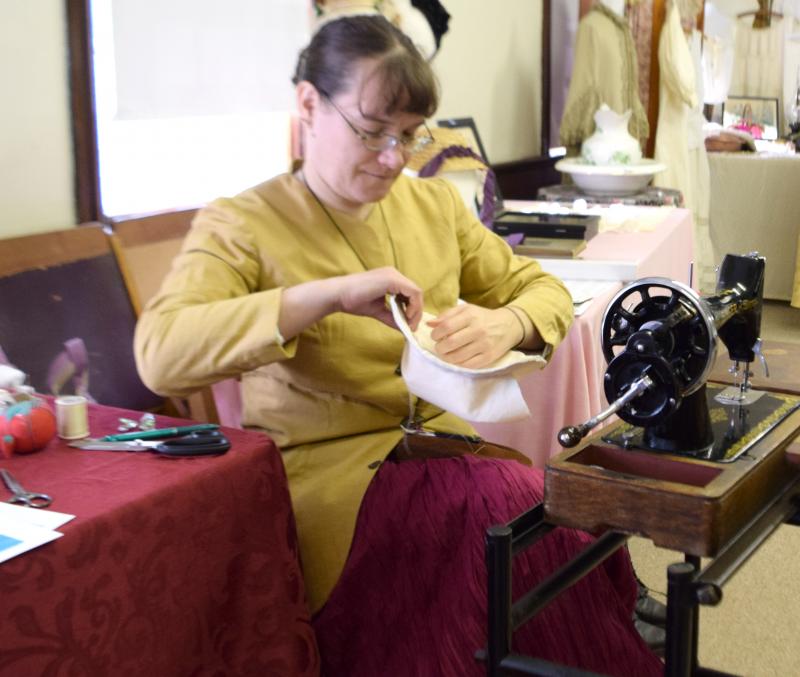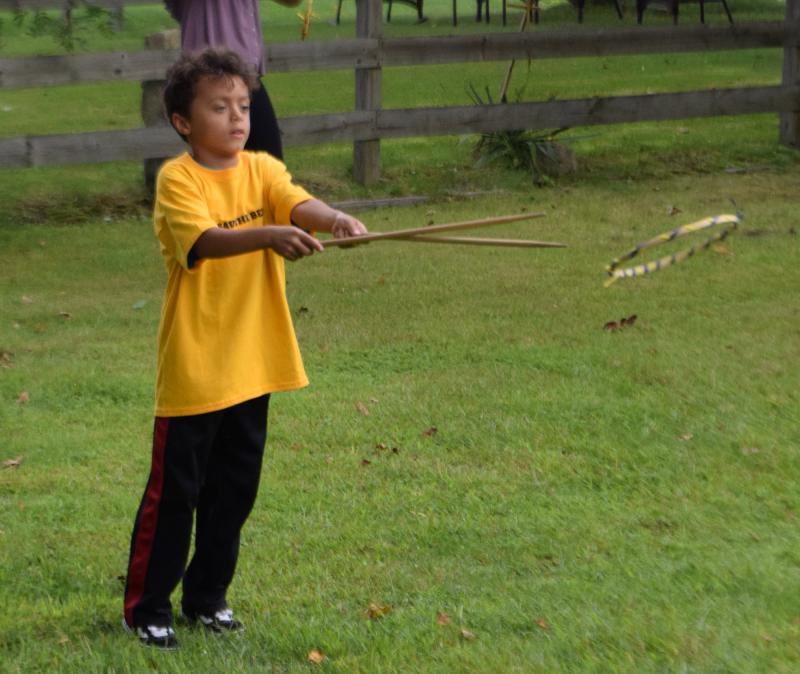Historical society brings guests to the 1870s
Visitors to the Dartmouth Historical and Arts Society took a field trip back in time to a period when laundry was a massive endeavor, wood stoves were commonplace, and kids built their own toys instead of powering them up.
Held in conjunction with the Dartmouth Grange Rural Community Fair, society members staffed exhibits detailing the average lives of those living from the 1870s to the 1910s – the period in which the society’s headquarters building on Russells Mills Road once functioned as a one-room schoolhouse – on September 9.
Catherine Plant guided visitors through an exhibit she set up inside the schoolhouse, showcasing women’s fashion and clothing trends. Dressed in period attire, she explained how workers at the Crystal Spring Laundry building, once housed at 114 Chase Road, serviced and cleaned the laundry of Dartmouth’s earlier residents.
Although electrified at one point, workers stuck to traditional laundry methods like using old irons heated on a stove for pressing. Eighteenth century laundry guides laid out an extensive and time-consuming process of carefully removing stains and treating garments before they could be washed.
She also highlighted a collection of common women’s accessories in the Victorian era. Among her most interesting items: a hair receiver. Women used the glass container to store hair that accumulated on their combs. The hair was wrapped on special metallic rods and used as hair accessories. She also had on display vintage washing stations, used before the advent of plumbing.
“If you lived in a rural area, you wouldn’t have plumbing, and rather than go out at night [to the outhouse] to wash up, you’d have this,” Plant explained.
Outside of the schoolhouse, Enid Silva demonstrated how those in the eighteenth century washed their clothes. Using a scrubbing board and soap, she rubbed until the garment was clean, then rang it through a press to remove excess soap before hanging it up to dry on a clothes line.
“The children would do this as a chore or whenever the adults needed it done,” she explained.
Wilson Mull cooked chili on a massive wood stove, which works by burning sticks and relies on Mull’s careful adjustments to airflow to ensure a consistent temperature. Luckily weather conditions were ideal, as wood stoves like his can be very difficult to use if the weather does not allow for easy air exchange.
Carol Flack taught kids and adults in attendance how to play three common period children’s games, including one called “graces.” Two players use rods to catch a tossed circular hoop.
“The kids had to make things to play with,” Flack explained. “There was no electronics back then.”



















